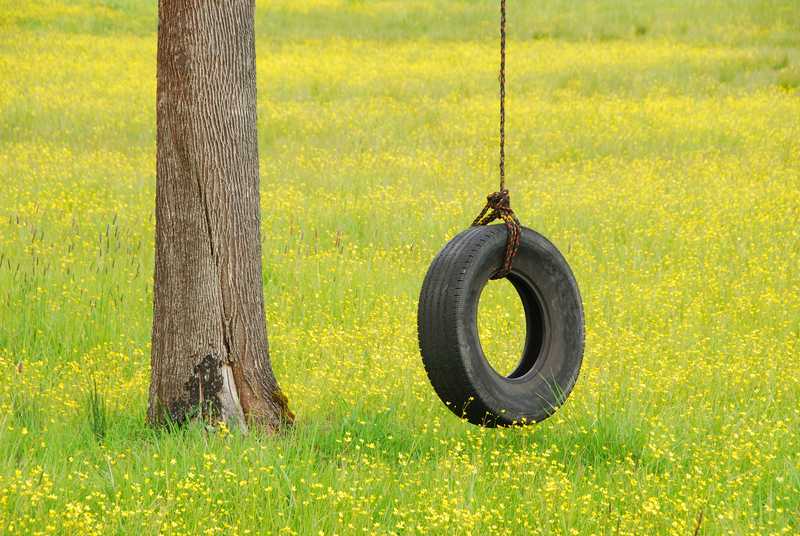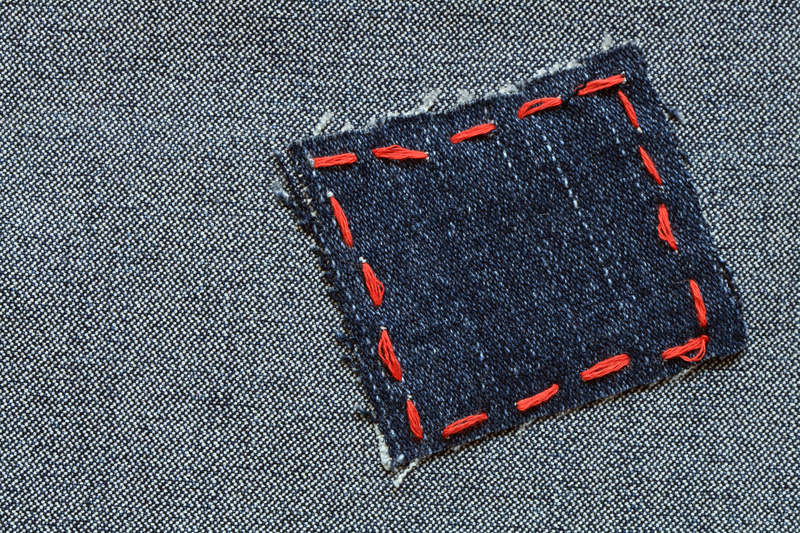Expert Tips for Decluttering and Hoarder Clean Up You Can Trust
Decluttering your home or helping someone overcome hoarding behaviors can feel overwhelming and emotionally charged. Whether you're tackling years of accumulated possessions or just trying to maintain a tidy space, expert tips for decluttering and hoarder clean up can make the process easier, safer, and more effective. In this comprehensive article, we'll share professional advice, actionable steps, and trusted strategies for transforming even the most cluttered environments.
Understanding Hoarding and Clutter: Why It Happens
To truly succeed at hoarder clean up and decluttering, it's helpful to understand why clutter accumulates in the first place. Hoarding is a complex mental health issue that extends beyond simple disorganization. According to the American Psychiatric Association, hoarding disorder involves persistent difficulty discarding possessions, resulting in overwhelming clutter and impacts on living spaces and quality of life.
- Emotional attachment - Items may hold sentimental value, making them hard to let go.
- Anxiety and fear - Worries about needing an item later can lead to keeping everything.
- Overwhelm and avoidance - The more clutter builds, the harder it feels to start cleaning up.
Knowing these root issues enables a more compassionate, trustworthy approach to hoarder clean up and decluttering.

Benefits of Decluttering and Hoarding Clean Up
A clean, organized home is about more than appearances. Decluttering and addressing hoarding behaviors can bring a range of benefits:
- Health and hygiene: Remove potential hazards, allergens, mold, and pests.
- Mental clarity: Reduced stress, anxiety, and feelings of overwhelm.
- Improved safety: Lower risk of falls and fire hazards in the home.
- Better relationships: Clean spaces encourage safe visits and stronger connections with loved ones.
- More usable living space: Enjoy your home to its fullest potential once more.
Step-by-Step Guide: Decluttering and Hoarder Clean Up You Can Trust
1. Start with the Right Mindset
Approaching a hoarder clean up or major decluttering project requires patience, empathy, and a non-judgmental attitude. Remind yourself (or your loved one) that decluttering is a journey, not a race, and each step is progress.
2. Set Realistic Goals
Break the process into manageable tasks. Set achievable goals for each session, such as clearing a small area--like a single shelf, drawer, or corner--instead of trying to tackle an entire room at once. Celebrate small wins!
3. Gather Essential Supplies
- Sturdy trash bags and boxes
- Cleaning supplies (gloves, disinfectant, face mask for dust/mold)
- Labels or stickers for sorting
- Donation bins or bags
- Basic tools for repairs or disassembly if needed
4. Use the "Four-Box" Method
Professional organizers often recommend the Four-Box Method for trusted, effective hoarder clean up:
- Keep: For items you use regularly or truly love.
- Donate/Sell: For items in good condition that others can use.
- Trash: For broken, dirty, or unusable items.
- Relocate/Unsure: For items that need to go elsewhere in the home or require more thought.
*Tip: Honesty is essential! Take breaks if you get stuck on the "unsure" box, but don't let it overflow.*
5. Work One Space at a Time
Divide the home into zones--begin in the area that will have the greatest positive impact, such as a kitchen counter, entryway, or primary living space. Quick wins build momentum and motivation!
6. Address Safety Concerns
Safety comes first during any trusted clutter and hoarder clean up. Watch for:
- Fire hazards (blocked exits, overloaded outlets)
- Tripping risks (boxes, papers, cords on the floor)
- Mold, pests, or biohazards (especially among older clutter)
When dealing with extreme cases of hoarding, don't hesitate to call professionals trained in hazardous material clean up or pest control.
7. Maintain Respect and Boundaries
If you're assisting someone else with hoarder house clean up, prioritize their dignity and autonomy. Compassion and clear communication are key. Avoid accusations or guilt trips; instead, focus on solutions and safety.
8. Know When to Seek Professional Help
Extreme hoarding situations can be dangerous or emotionally taxing to tackle without assistance. Certified hoarder clean up specialists have the training, equipment, and sensitivity to approach these projects confidentially and thoroughly.
- If you encounter mold, animal waste, or structural issues, call a professional.
- If anxiety, depression, or trauma are present, a mental health counselor can provide crucial support.
Top Strategies from Decluttering Experts
- Set a timer. Work for 15-30 minutes, then take a break.
- Enlist support. Ask a friend for encouragement, or join an online community for accountability.
- Use visual cues. Take before-and-after photos to see progress and stay motivated.
- Implement "one in, one out." For every new item brought into the home, remove an old one to prevent future clutter.
- Digitize where possible. Scan and store paperwork or sentimental photos electronically to reduce physical items.
Decluttering vs. Hoarder Clean Up: What's the Difference?
While both aim to restore order and function, there are key differences:
- Decluttering is periodic tidying, often involving sorting out excess items, outdated belongings, and unused things. It's typically straightforward and focused on improving flow, aesthetics, and utility.
- Hoarder clean up is a more involved process. It often requires addressing deeply embedded hoarding patterns, cleaning up hazardous materials, and sometimes making repairs to the property. It frequently includes working with mental health professionals and specialized cleaning teams for safe, lasting results.
Common Challenges and Solutions in Hoarder Clean Up You Can Trust
Emotional Hurdles
Letting go is hard. Objects can become repositories for memories, love, or a sense of identity. Key solutions:
- Assign emotional value only to select items, not everything.
- Take a photo to preserve the memory, even if you let go of the physical item.
- Focus on keeping the best, not the most.
Physical Challenges
When hoarding has led to blocked pathways or unstable piles of objects, safety comes first. Tips:
- Clear walking paths immediately.
- Don't move heavy items alone--ask for help or use proper equipment.
- Wear gloves, masks, and protective gear as needed.
Decision Fatigue
Having to decide item-by-item can be exhausting. Try these strategies:
- Start with easy decisions: obvious trash, expired food, broken items.
- Take breaks and hydrate.
- Set a daily limit for tough choices, then stop and resume the next day.
Maintaining Long-Term Success: Preventing Future Hoarding and Clutter
The most trusted solutions for hoarder clean up and decluttering don't end once your space is clean. To maintain progress:
- Organize with intention. Use labeled storage bins, shelves, and hooks to give each item a home.
- Commit to regular maintenance. Schedule monthly or seasonal tidy-up sessions.
- Stay mindful of triggers. If shopping is a problem, limit trips or unsubscribe from store emails.
- Ask for help if clutter starts to return--trusted friends or professionals can keep you accountable.
When to Call in the Pros: Trusted Hoarder Clean Up Services
Some situations require expert intervention, especially if the home contains hazards, odors, pests, or overwhelming filth. Professional hoarder clean up services offer:
- Discrete and compassionate teams trained in sensitive removals
- Specialty equipment for deep cleaning, sanitation, and haul-away
- Experience managing biohazards, mold, and structural repairs
- Coordination with social services and mental health providers when needed
Trusting the pros saves time, reduces risk, and helps restore homes and lives with respect and privacy.

Frequently Asked Questions about Decluttering and Hoarder Clean Up
-
How long does it take to clean up a hoarded home?
It varies--from a few days to several weeks--depending on the extent of clutter, hazards, and needed repairs. -
What should I do if a family member refuses help?
Offer empathy, set gentle boundaries, and consider involving a trusted professional or counselor trained in hoarding behaviors. -
How do I handle valuable or sentimental items?
Keep a small selection, display favorites, and consider digital keepsakes (photos, scanned letters) to preserve memories without physical clutter. -
Can I donate items from a hoarding clean up?
Yes, as long as they're clean and in usable condition. Contact local charities or shelters for guidelines.
Conclusion: Take the First Step Towards a Clean, Healthy Home
Whether you're dealing with years of accumulated items or just looking to refresh your living space, these expert tips for decluttering and hoarder clean up you can trust offer actionable, compassionate solutions. Remember, overcoming clutter and hoarding is possible--one step, one box, one room at a time. If you need extra hands or emotional support, don't hesitate to reach out to trusted professionals. Reclaim your home, your peace of mind, and your life.
Start your journey today with these proven, expert-backed tips for decluttering and hoarder clean up you can trust.
```